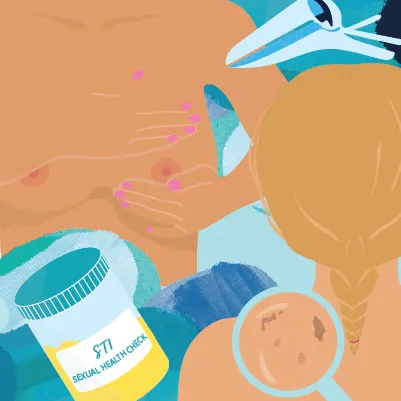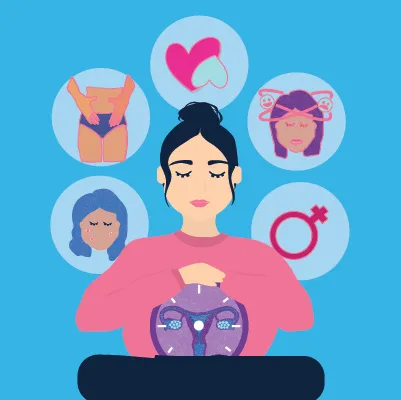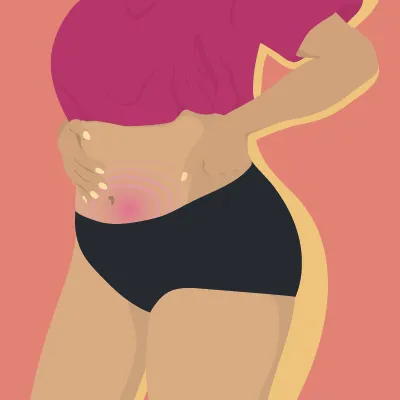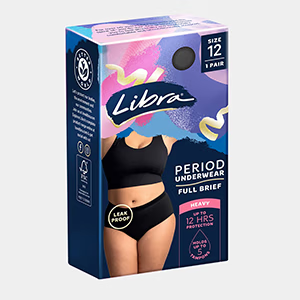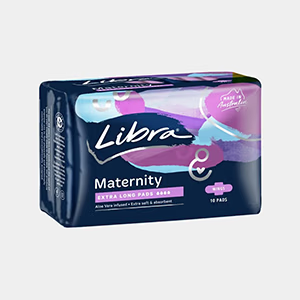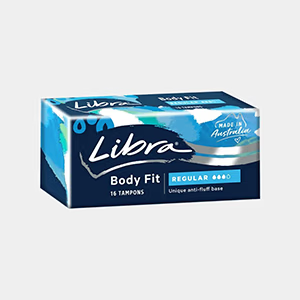Aug 29, 2023
What You Need to Know About Menstrual Cycle Hormones
Menstrual cycle hormones do a whole lot. The big 3 are oestrogen, progesterone, and testosterone. There’s also the follicle-stimulating hormone (FSH), which releases oestrogen and helps an egg develop, and the luteinising hormone (LH), which kicks things in motion by stimulating ovulation. Fun fact: the FSH and LH are both produced by the pituitary gland in the brain, while other hormones in the menstrual cycle are mostly produced in the endocrine and reproductive systems!
All menstrual cycle hormones have their own special roles and impacts on the body. Team Libra has put our lab coats on and have broken it down for you. Let’s talk science.
Oestrogen
Think of oestrogen as the powerhouse hormone. Oestrogen plays a vital role in the development and maintenance of a healthy reproductive system, from rising oestrogen levels in puberty to help develop the adult body, to thickening the uterine lining for pregnancy, and more. Oestrogen isn’t an all-in-one hormone, either. There are actually three major types: oestradiol, oestriol and oestrone. Now that you’ve gotten through that tongue-twister, here’s how they differ:
Oestradiol
The main oestrogen hormone, oestradiol is most common in people during their prime fertile years. Produced by the ovaries, oestradiol aids in maturing an egg to be released, thickening the uterine lining for pregnancy, and making sure your bones are dense and healthy.
Oestriol
Oestriol isn’t around so much until pregnancy, where it’s then made in the placenta to keep the baby healthy and to support your body for labour and childbirth.
Oestrone
This hormone has a whole team behind it: the ovaries, adrenal glands and fatty tissues. It also has the same function as oestradiol: to support a healthy reproductive system. Oestrone is a weaker form of oestrogen, typically highest in menopausal and postmenopausal people.
Now, back to basics: oestrogen is responsible for regulating the menstrual cycle, and because of this, levels rise in the follicular phase and luteal phase, and drop after ovulation and at the end of the menstrual cycle. This powerful hormone guides ovulation and thickens the endometrium - the fancy word for your uterine lining - developing it into a mucous membrane that a fertilised egg can attach to for pregnancy. Additionally, oestrogen also impacts secondary sex characteristics, which is why your breasts may feel bigger or extra sensitive before or during your period.
Not everyone has the same levels of oestrogen. Due to certain medications, like hormonal birth control, or factors like having a higher body fat percentage, experiencing stress or overconsuming alcohol, some people may experience high oestrogen levels. This can lead to symptoms like irregular periods, mood swings, fatigue, low sex drive and weight fluctuation.
On the flip side, people with low oestrogen levels may experience symptoms such as irregular periods, dry skin, sensitive breasts, vaginal dryness, hot flashes or weaker bones. Low oestrogen levels are often caused by aging, ovarian cysts or other hormonal conditions, or from excessive diet and exercise.
Progesterone
Ever heard of the corpus luteum? It’s a temporary gland that pops up in your ovaries, following the release of an egg in ovulation. This lil thing is important because it releases progesterone, the hormone that also helps thicken the uterine lining for pregnancy. When pregnancy doesn’t occur, the corpus luteum and the uterine lining break down, dropping progesterone levels and bringing on your period.
People with conditions like PCOS, prolactin disorder and thyroid problems can experience low progesterone. Common symptoms include irregular periods, headaches, fertility issues, bloating or weight gain, difficulty sleeping and low mood swings. Similarly to high oestrogen, some symptoms of high progesterone are fatigue, low sex drive and weight fluctuation, as well as tender breasts and leg pains. Some causes of high progesterone are ovarian cysts, issues with the adrenal glands or ovarian cancer.
Testosterone
Testosterone has the reputation as the macho hormone and is known as the one that heightens sex drive, strengthens muscles and regulates bone mass. Testosterone mainly releases from the ovaries, where it enters the bloodstream, but it can also be released from the adrenal glands. Testosterone’s main functions are to help maintain muscle and bone health, and to regulate libido.
Factors like malnutrition, premature menopause and chemotherapy, or conditions like Turner syndrome, can all cause low levels of testosterone. This can result in a low sex drive, low energy, thinning hair, dry skin, vaginal dryness, and higher risks of infertility or depression.
High levels of testosterone can make you grow more body hair, specifically facial hair, and can cause balding, acne, a deeper voice, higher muscle mass and an enlarged clitoris. The causes of high testosterone can be hirsutism, a hormonal condition that causes an overgrowth of body and facial hair, adrenal gland disorders, and PCOS.
Managing symptoms
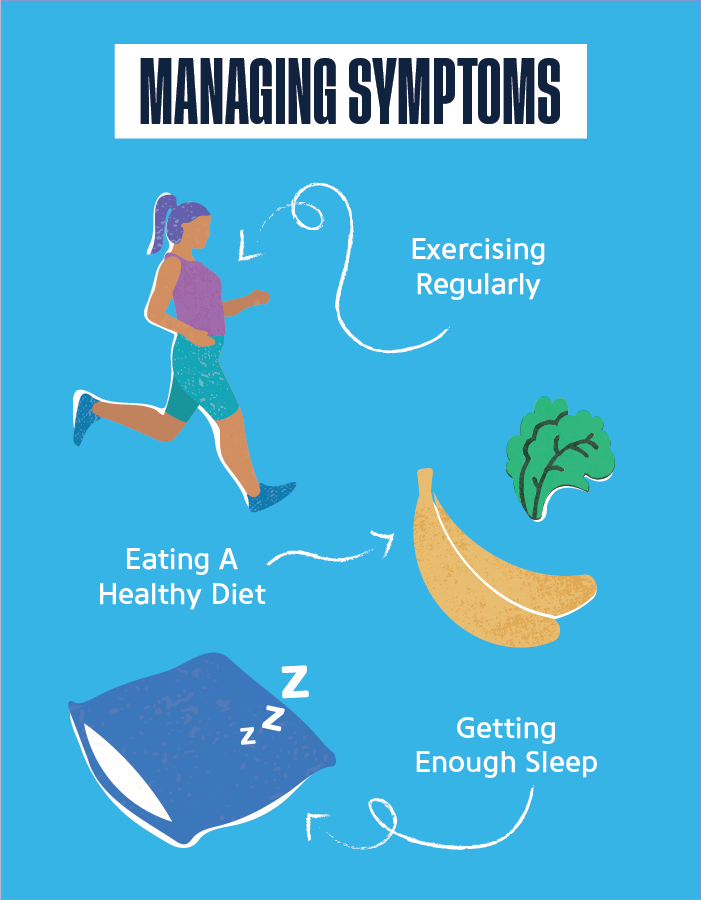
If you’ve related to some of the symptoms listed above, your menstrual cycle hormones could be irregular. But it’s okay - there are things you can do to help manage symptoms, and even though they can be a pain to live with, you’re not alone.
Lifestyle changes can help you manage symptoms. These include getting enough sleep, eating a balanced, healthy diet of nutritious and nourishing foods, and exercising regularly. All of these are found to help regulate hormones, but can also help to relieve stress, which is a common cause of irregular hormone levels.
If you’re feeling overwhelmed or confused about your menstrual cycle hormones, know you’ll be A-OK. Just because you’ve related to some of the symptoms listed, doesn’t mean you have the causes linked to them. Also remember that not everyone has perfect hormone levels; lifestyle, stress, genetic predispositions and health conditions make that a bit difficult. Hormones are complex, and so are our bodies.
It’s important to seek advice from a healthcare professional if something feels off, be it irregular periods, mood swings or fatigue. If it is a hormonal issue, your healthcare professional can help you navigate it.
Love, Libra x
Essity makes no warranties or representations regarding the completeness or accuracy of the information. This information should be used only as a guide and should not be relied upon as a substitute for professional, medical or other health professional advice.

